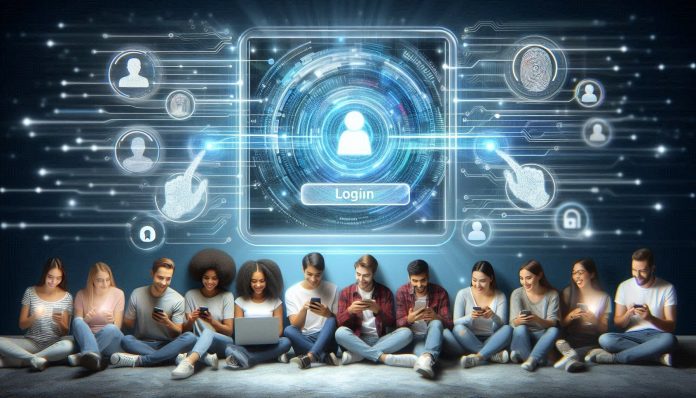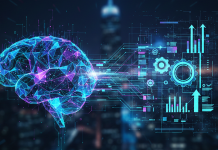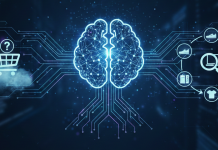Artificial intelligence continues to revolutionize the way we interact with technology, and public services are no exception. One remarkable development is the rollout of AI-powered login systems, designed to make accessing public services more secure, efficient, and user-friendly. By bridging gaps in accessibility and streamlining operations, these systems are poised to redefine how individuals engage with government platforms, healthcare portals, and beyond.
But why is this shift so significant, and what should we expect? This post explores the integration of AI-based login systems in public services and offers insights into their benefits, challenges, and potential role in creating a digital-forward society.
What Are AI-Powered Login Systems?
Unlike traditional login interfaces based on passwords or PINs, AI-powered login systems use advanced algorithms and data analysis to authenticate users. These systems might rely on biometric data such as fingerprints, facial recognition, or voice patterns, as well as behavioral analytics like typing speed or navigation patterns.
By building a multi-layered understanding of each user, AI doesn’t just enhance security; it also eliminates the friction that often accompanies complex login processes. Imagine seamlessly accessing your government account or healthcare records with a glance or a quick voice command—that’s the world AI is building.
Why Public Services Are Turning to AI-Driven Technology
Public services deal with data that is often highly sensitive and critical, whether it’s personal identification numbers, financial transactions, or healthcare information. Password-based systems are increasingly viewed as outdated and vulnerable, given their susceptibility to hacks and breaches.
The main reasons public services are adopting AI login technologies include:
- Enhanced Security: AI’s ability to detect anomalies and analyze patterns helps reduce fraud and unauthorized access.
- Improved User Experience: Simpler, quicker login processes mean users face fewer barriers when accessing essential services.
- Cost Efficiency: AI systems reduce the need for human intervention and mitigate expenses related to security breaches or password recovery.
- Scalability: With AI, public systems can anticipate and manage frequent use cases without compromising performance.
Examples of AI Login Applications in Public Services
- Healthcare Portals
Healthcare systems have begun integrating AI-based authentication for accessing patient records. Biometric access reduces the possibility of misidentification and ensures only verified personnel or the patients themselves can access data.
- Tax and Financial Services
File your taxes with ease and security. AI-powered systems help verify users through advanced biometric readers before they proceed with form submissions, offering peace of mind for individuals managing financial details online.
- Social Services
Social benefit programs now incorporate AI to streamline application processes. Beyond security, AI systems simplify steps for those with limited technological literacy, improving overall accessibility.
- E-Voting Systems
AI-powered authentication is being tested in e-voting to create safer, tamper-proof elections that protect voter identities while ensuring no fraudulent access occurs.
The Benefits of AI in Public Login Systems
Robust Security Measures
AI uses adaptive algorithms capable of learning new patterns over time, allowing these systems to quickly detect fraudulent activities like account takeovers, phishing attempts, or brute-force attacks. This adaptive security is particularly crucial for public services, where breaches can have devastating effects.
Accessibility for All Users
Login systems powered by AI are removing accessibility hurdles for people with disabilities, non-tech-savvy users, and those who struggle with maintaining passwords. Voice recognition and facial scanning ensure secure access without heavily relying on manual inputs, keyboards, or screens.
Reduced Support Costs
AI replaces redundant tasks such as password recovery or manual identity verification, enabling public institutions to allocate resources more effectively. For instance, governments can save millions annually by automating login-related queries through AI chatbots or self-service interfaces.
Faster Authentication
Gone are the days of forgotten passwords or repeated CAPTCHA verifications. AI-enabled technology ensures lightning-fast login processes, reducing frustration for users trying to access essential services in critical moments.
Scalable Solutions
Public systems often experience peak usage, especially for healthcare registrations or tax filing deadlines. AI ensures these spikes are handled efficiently without compromising user experience or system security.
The Challenges of AI-Powered Login Rollout
Privacy Concerns
AI login systems often require access to personal biometric data, raising questions about privacy protocols and data storage. How governments handle this sensitive information will play a significant role in determining public trust.
Implementation Costs
Developing and deploying AI systems can require significant up-front investment. While these systems often save costs in the long term, smaller municipalities may face challenges finding the budgets to adopt this technology.
Bias and Fairness
AI algorithms are only as good as the data they’re trained on. If not carefully crafted, these systems can perpetuate biases in recognizing facial features or speech patterns, potentially leading to exclusions or errors.
Need for Legal and Ethical Guidelines
The broad use of AI technology in authentication raises vital legal and ethical questions. Policymakers and technologists must collaborate to ensure AI operates within a framework that prioritizes transparency, accountability, and citizen rights.
How Governments Can Prepare for AI Login Integration
To ensure successful implementation, governments and public institutions must:
- Invest in Public Education
Educating citizens on how AI-powered systems work can build trust and ease adoption. Clear communication about data security measures is essential to dispel fears.
- Collaborate with Ethical AI Providers
Partnering with companies known for ethical AI practices can set a strong standard for transparency and avoid the pitfalls of poorly configured algorithms.
- Pilot Programs
Rolling out these systems in small-scale pilot programs allows organizations to identify potential flaws, address them, and refine the overall experience before broader implementation.
- Update Regulatory Standards
Governments must ensure stringent policies are in place to safeguard data privacy and address ethical questions tied to AI usage in public systems.
- Focus on Inclusivity
Design AI login systems with diverse populations in mind, considering cultural differences, accessibility needs, and varying degrees of technological literacy.
Are AI Login Systems the Future of Public Services?
AI-powered login systems are no longer a concept of the future; they’re happening now. Their potential for securing sensitive data, improving access, and streamlining operations makes them valuable tools for public services worldwide. While challenges remain, the benefits of data security, cost savings, and inclusivity far outweigh the drawbacks. The key lies in responsible implementation and transparent governance.
For institutions considering this leap, careful planning and collaboration are paramount. After all, rolling out AI login systems isn’t just about technology; it’s about empowering individuals to engage with public systems in a way that feels safe, seamless, and effective.






